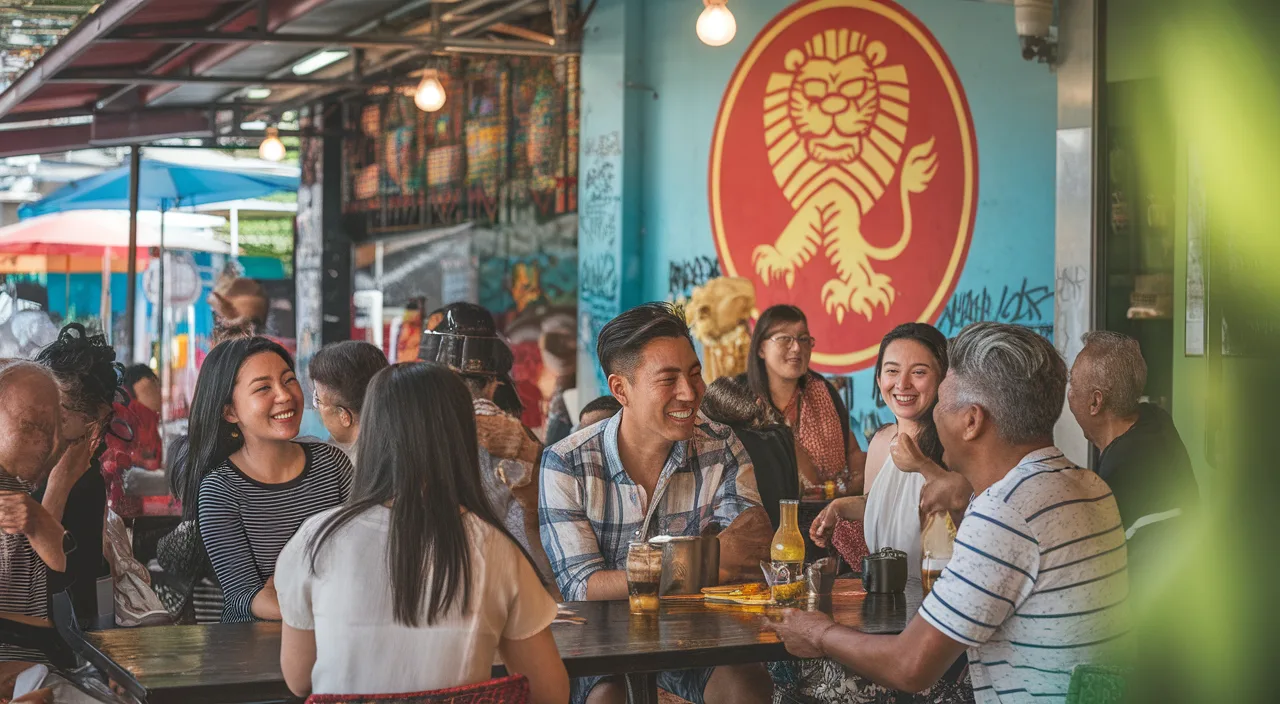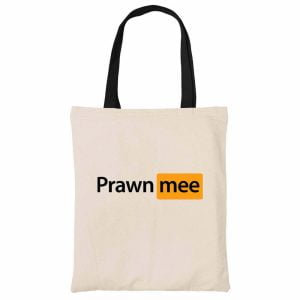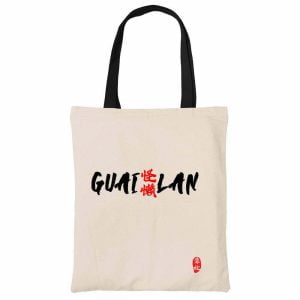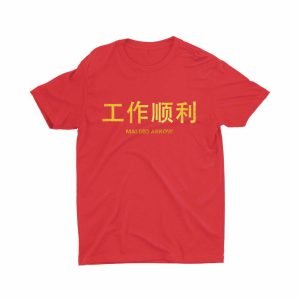What does ‘in case later kena’ really mean in Singlish?
If you’ve encountered the Singaporean Singlish phrase “in case later kena,” you’re witnessing one of Singapore’s most telling cultural expressions. This common Singlish expression translates to “just in case something bad happens,” but it reveals much more about our local mindset. When we use this phrase, we’re expressing our quintessentially Singaporean approach to life – always prepared, slightly paranoid, and deeply practical.
TL;DR: Your Cheat Sheet to Understanding ‘In Case Later Kena’
- ‘Kena’ means: to get hit with something, often bad; e.g. “kena scolding”, “kena rain”
- Phrase in full: “In case later kena” = “Just to be safe, so I don’t kena something later.”
- Recognisable traits: Often followed by kiasu behaviour (another Singlish fave).
- Real-world use: “I bring umbrella — in case later kena rain.”
- Too Local Warning: Saying it excessively might make you sound paranoid — or super auntie/uncle.
Understanding Singlish: Singapore’s Unique Cultural Language
Singlish isn’t just broken English — it’s Singapore’s linguistic treasure that perfectly captures our multicultural identity. This unique Singaporean English language combines elements from English, Malay, Hokkien, Teochew, Tamil, and Cantonese, creating a vibrant communication style that’s distinctly ours. Used across kopitiams, offices, and everyday conversations, Singlish represents the heart of Singapore culture language.
Understanding Singlish goes beyond learning vocabulary – it’s about appreciating how our diverse communities created a shared linguistic identity. These Singaporean colloquialisms aren’t just words; they’re cultural bridges that connect people across ethnic and generational lines. When you master common Singlish expressions, you’re not just learning language – you’re embracing Singapore’s cultural DNA.
Top 10 Essential Singlish Phrases Every Singaporean Should Know
Here are the most important Singaporean Singlish phrases that form the foundation of our local communication:
-
Graphic, Inspixe, Ladies, Mens, Quote, T-shirts, Typography
Price range: $30.00 through $38.00 Select options This product has multiple variants. The options may be chosen on the product page
- “Kiasu” – Fear of losing out. This defines much of Singaporean behavior and is essential for understanding Singlish culture.
(Understanding this Singlish term is crucial for grasping Singapore mentality.) - “Bo jio” – Why you never invite me? A classic expression of social FOMO in Singapore.
- “Aiyo/Aiyoh” – Universal expression of surprise, dismay, or sympathy across all communities.
- “Alamak” – Oops! One of the most versatile Singaporean colloquialisms for expressing surprise.
- “Lah” – The most iconic Singlish particle that adds emphasis and local flavor to any sentence.
- “Lor” – Suggests resignation or acceptance in typical Singaporean pragmatic style.
- “Leh” – Adds assurance or appeal. “Can lah!” differs significantly from “Can leh.”
- “Kena” – To get hit by something unpleasant. Central to many Singlish expressions.
- “Sian” – Feeling unmotivated or bored. Perfect for describing Monday mornings.
- “Chope” – To reserve, especially with tissue packets at hawker centers.
The Cultural Evolution of Singaporean Singlish
The history of Singlish in Singapore spans decades, rooted in our nation’s multicultural foundation. This Singaporean English language evolved from practical necessity – when people from different linguistic backgrounds needed to communicate, they naturally blended their native languages with English. What started as simple pidgin English transformed into the rich, expressive Singlish we know today.
Common Singlish expressions emerged from our kampung spirit and collective experiences. From void deck conversations to kopitiam discussions, these phrases capture uniquely Singaporean situations and emotions. Linguists now recognize Singlish as a legitimate creole language with its own grammar rules and cultural significance, elevating our local expressions from mere slang to cultural heritage.
Cost Guide: What Does It Cost to Learn Singlish?
While picking up Singlish from Netflix might be free, here’s a rough idea if you’re looking for professional help:
| Learning Option | Cost Range (SGD) |
|---|---|
| Online YouTube Learning | Free |
| 1-on-1 Language Coach for Expats | $30–$90/hr |
| Group Singlish Classes (Community Centres) | $5–$20/session |
| Language Apps Subscription | $5–$15/month |
Common Misconceptions About Singlish Debunked
Myth 1: Singlish ruins proper English skills.
Reality: Singaporeans excel at code-switching between Singlish and standard English depending on context. Understanding Singlish actually demonstrates linguistic flexibility.
Myth 2: Only older generations use Singlish.
Reality: Young Singaporeans continue using and evolving Singlish, creating new expressions while preserving classic ones.
-
Children, Chinese, Chinese New Year, KaoBeiKing, Quote, Singlish/Hokkien, Typography
$30.00 Select options This product has multiple variants. The options may be chosen on the product page
Myth 3: Singlish lacks proper grammar structure.
Reality: Singlish follows consistent grammatical patterns and rules, making it a legitimate linguistic system studied by academics worldwide.
Mastering Singlish: Your Complete Usage Guide
Learning to use Singaporean Singlish phrases effectively requires understanding context and cultural nuance. Whether you’re navigating office conversations or hawker center interactions, these tips will help you use Singlish authentically:
- Start with particles: Master ‘lah’, ‘ah’, ‘lor’, ‘leh’ – these form the foundation of natural Singlish speech.
- Match your audience: Use Singlish in casual settings but switch to standard English for formal situations.
- Learn through food talk: Singlish shines in food conversations – “This laksa confirm shiok lah!”
- Practice common expressions: Focus on frequently used phrases like “in case later kena” before attempting complex Singlish slang.
Remember, authentic Singlish usage comes from understanding our cultural context. Use these Singaporean colloquialisms naturally, and you’ll soon find yourself part of Singapore’s linguistic community!
Frequently Asked Questions
- Is Singlish proper English?
Singlish is a distinct creole language, not standard English, but it’s a fully functional communication system used across Singapore’s diverse communities. - Can foreigners use Singlish?
Yes, but learning proper context is crucial for authentic usage. Understanding Singlish cultural meanings prevents awkward misunderstandings. - Is Singlish widely accepted in schools?
Schools promote standard English in formal settings, but students naturally use Singlish in casual interactions. - What’s the most important Singlish phrase to learn?
“Lah” is the most versatile and iconic – you can use it in almost any emotional context. - Is Singlish disappearing?
Not at all. Social media, memes, and new generations continue evolving and preserving Singlish expressions.








